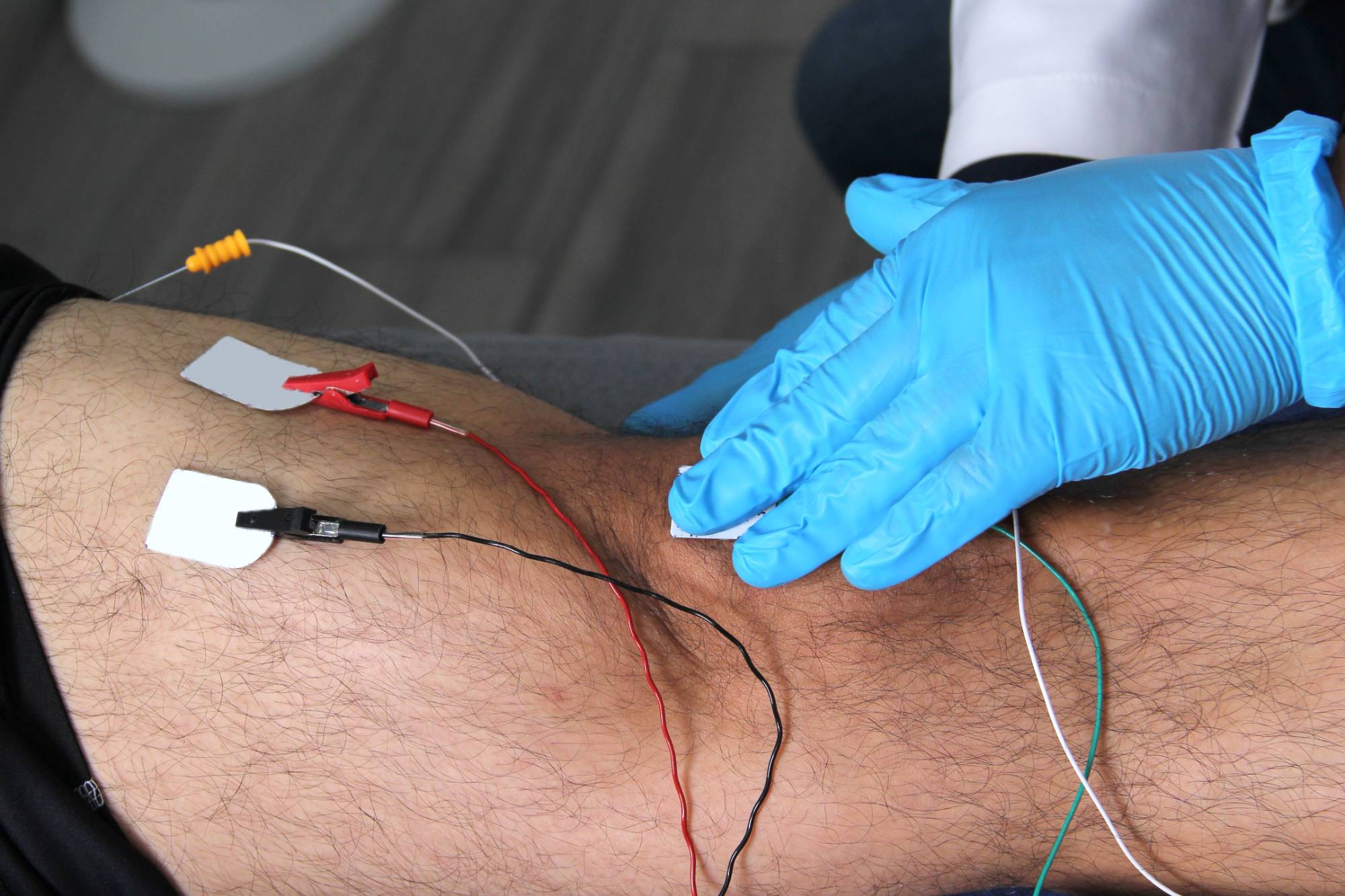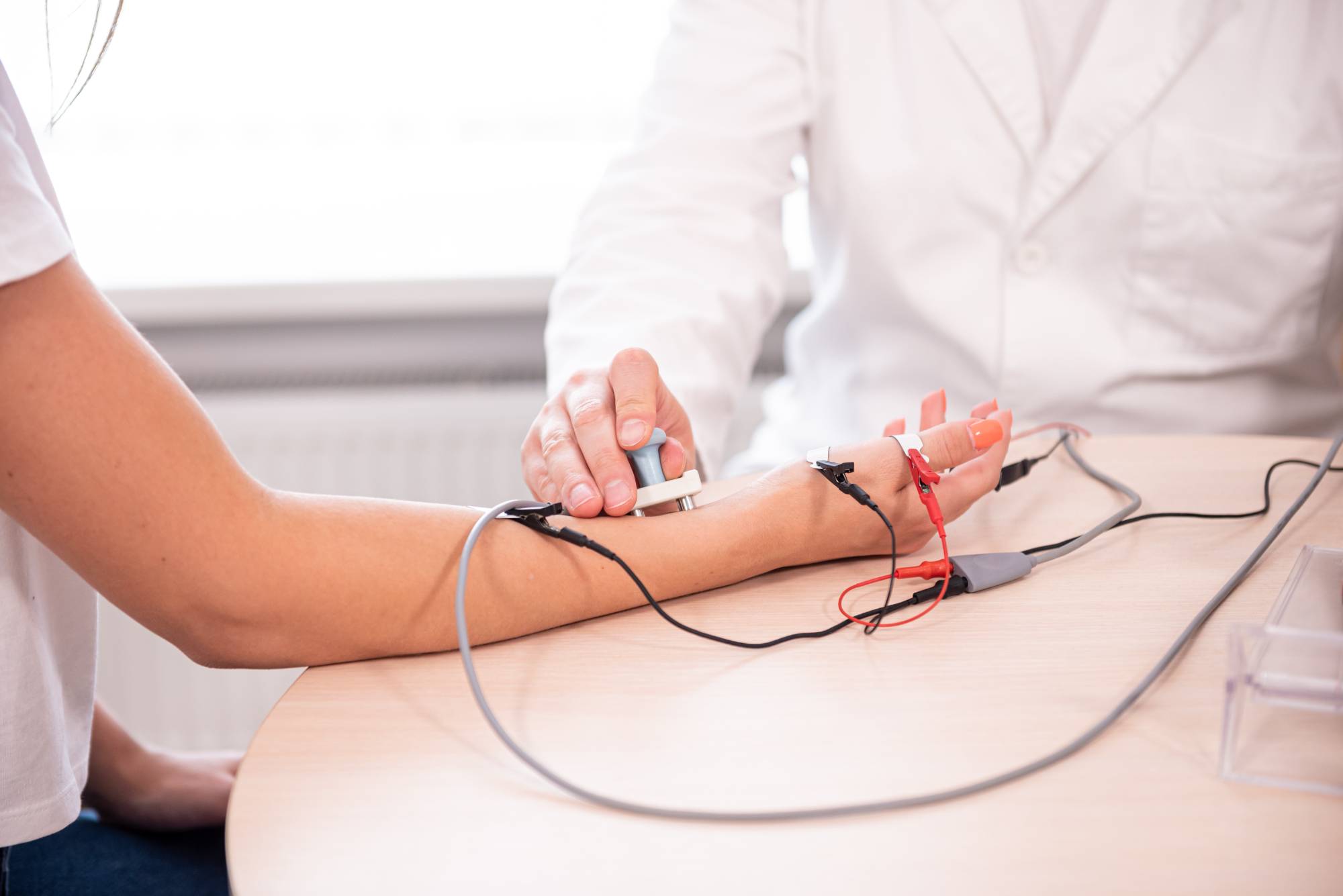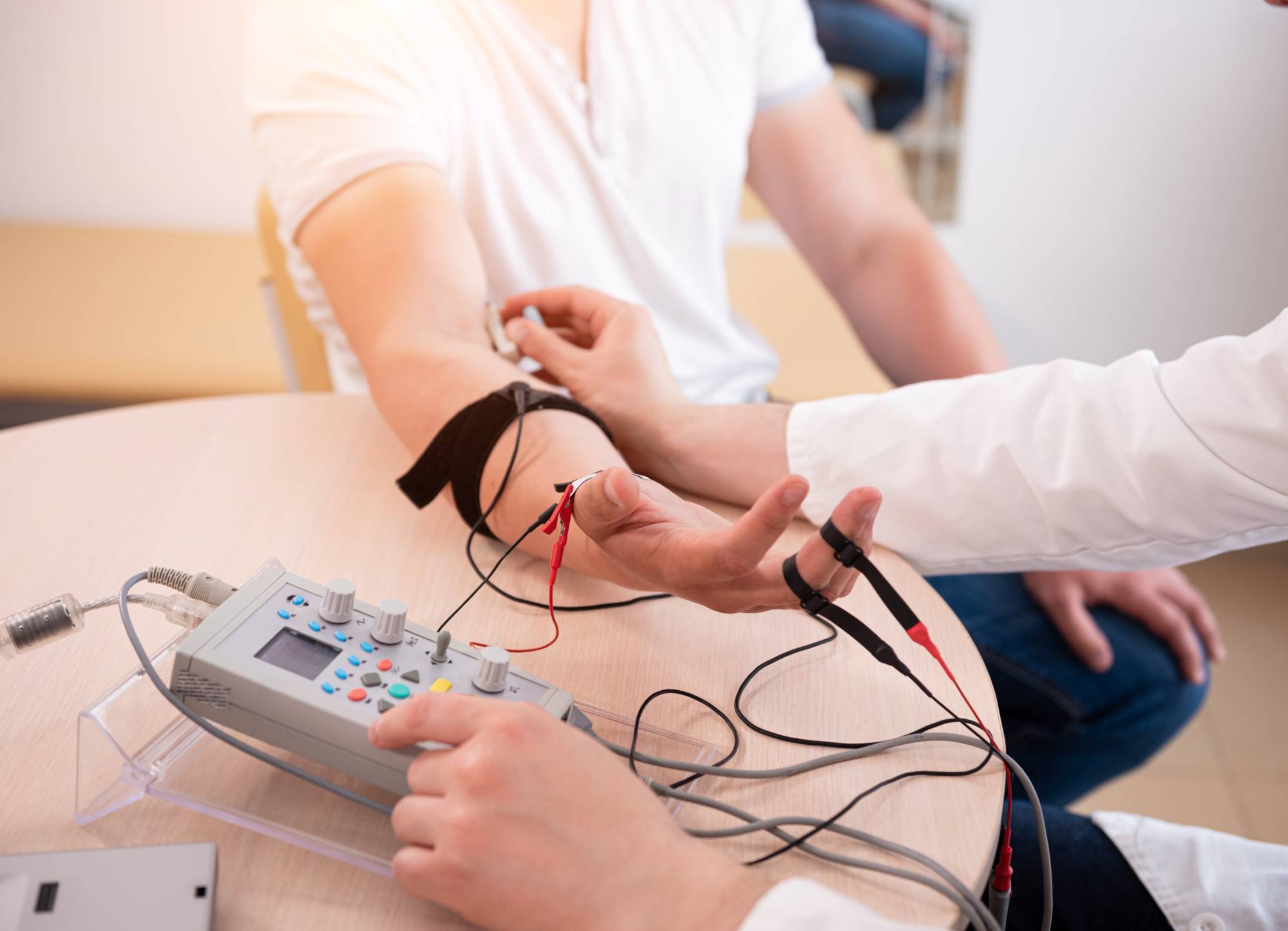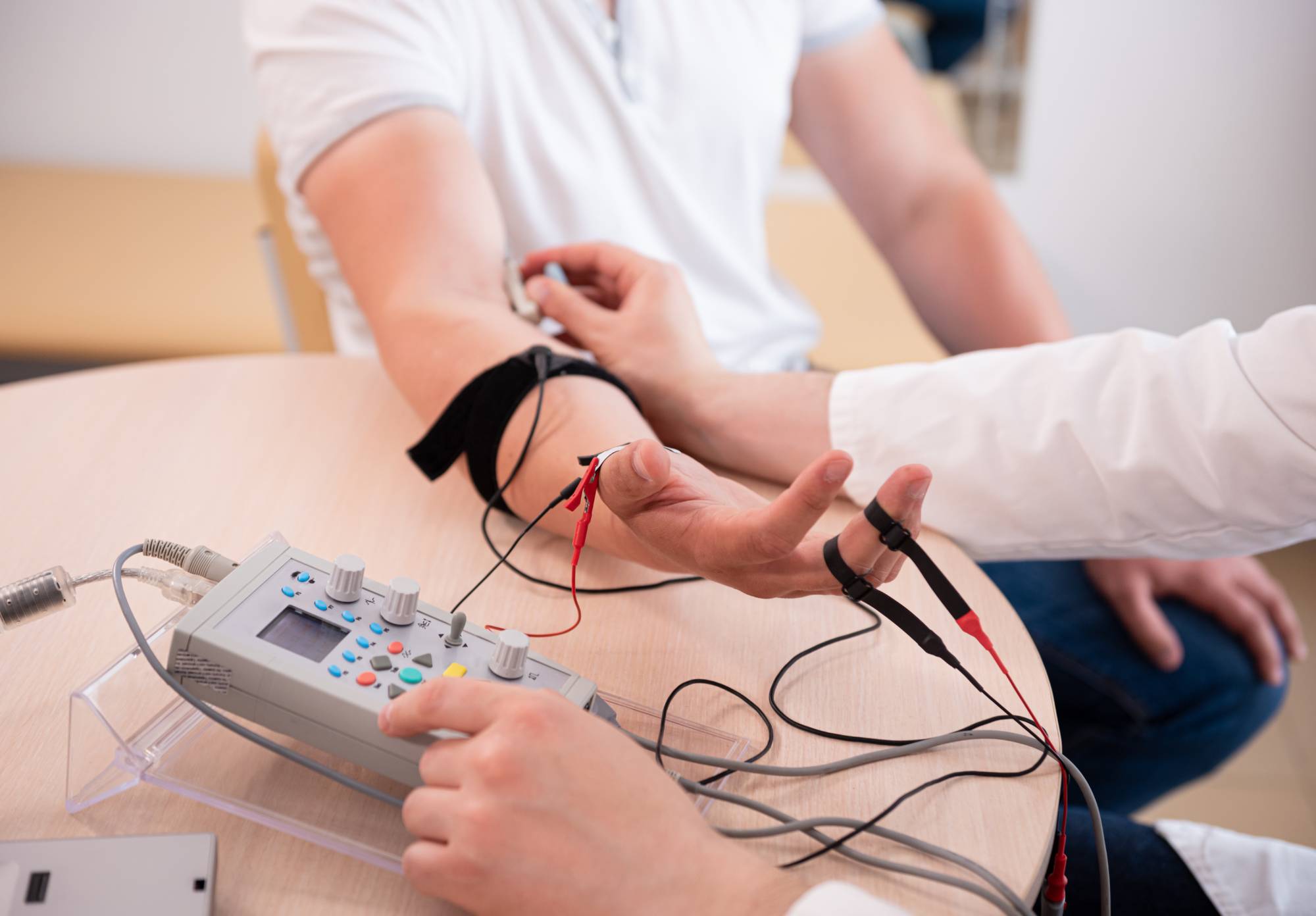Advanced electromyography testing that pinpoints exactly what’s causing your numbness, tingling, or muscle weakness.

Reviews

You’ve been dealing with symptoms that don’t make sense. Numbness in your hands that makes typing difficult. Muscle weakness that comes and goes. Tingling that keeps you awake at night.
EMG testing gives you definitive answers. Instead of guessing about nerve damage or muscle disorders, you get precise measurements of how your nerves and muscles actually function. The test reveals exactly where problems exist and how severe they are.
With clear diagnostic results, your treatment becomes targeted instead of trial-and-error. You stop wondering if your symptoms are serious and start addressing the root cause. Most patients leave with a complete understanding of their condition and a clear path forward.
NY Spine Medicine has been providing electrodiagnostic testing to Edison residents for years. Our physicians specialize in neuromuscular conditions and understand exactly what to look for during EMG testing.
You’re not getting rushed through a generic test. We take time to explain what we’re measuring and what the results mean for your specific situation. We work directly with your referring physician to ensure you get coordinated care.
Our practice focuses exclusively on spine and nerve-related conditions, which means we see cases like yours regularly. We know the difference between common nerve compression and more complex neuromuscular disorders.

Your EMG testing appointment starts with a discussion about your symptoms and medical history. We need to understand exactly what you’re experiencing and when it started.
The nerve conduction study comes first. Small electrodes are placed on your skin, and mild electrical pulses measure how fast signals travel through your nerves. This part feels like small static shocks and takes about 15-20 minutes.
The electromyography portion involves inserting thin needle electrodes into specific muscles. The needles detect electrical activity while your muscles are at rest and when you contract them. Most patients describe this as similar to getting blood drawn. The entire process typically takes 45-60 minutes, and you get initial results immediately.

Ready to get started?
Your EMG testing includes both nerve conduction studies and electromyography measurements. This combination provides a complete picture of your neuromuscular function. The testing can diagnose conditions like carpal tunnel syndrome, diabetic neuropathy, sciatica, muscle disorders, and nerve injuries.
You receive detailed results that show nerve conduction speeds, muscle response patterns, and areas of dysfunction. We explain what each finding means and how it relates to your symptoms. Most insurance plans cover EMG testing when medically necessary.
We coordinate directly with your referring physician to ensure seamless follow-up care. You leave with a clear understanding of your diagnosis and recommended next steps for treatment.

New York:
Florida:
Support